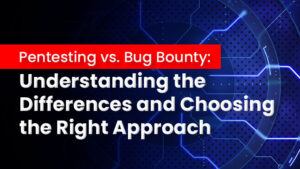Introduction
The capacity to build a secure network connection while using public networks is called a virtual private network. VPNs protect your online identity by encrypting your internet traffic. As a result, third parties will find it more difficult to trace your online activities and steal your data. Encryption is utilized in real-time.
The AWS Virtual Private Network (AWS VPN) establishes a private and secure tunnel between your network or device and the AWS Cloud. You can extend your present on-premises network into a VPC or connect to extra AWS services from a client.
This article covers detailed knowledge of AWS Virtual Private Network (VPN).
What is VPN?
A VPN is the ability to establish a secure network connection while using public networks. VPNs hide your online identity and encrypt your internet traffic. This makes it more difficult for third parties to follow your online activities and steal your data. Encryption is utilized in real-time.
What is AWS VPN?
AWS Virtual Private Network (VPN) solutions securely connect your on-premises networks, remote offices, client devices, and the AWS global network. This system comprises two services: AWS Client VPN and AWS Site-to-Site VPN. Each service provides a managed, scalable, and highly available cloud VPN solution to secure your network traffic.
How to set up a VPN?
For individuals, there are two typical ways to access VPN services:
- Use a VPN provider – You can select a VPN service that you can use to connect from either your browser or by downloading an application or piece of software to your device. These are subscription-based services, and the pricing is often per device. As a result, setting them up might be rather expensive. Additionally, every device needs to be configured uniquely.
- Employ a VPN router – This entails either buying a router that already has a VPN connection set up or setting up VPN software manually on your home router. The benefit of this strategy is that every device using this router to access the internet is automatically protected.
Components of AWS VPN
- Virtual Private Gateway – VGW: A VPN concentrator is the VPN concentrator on the AWS side of the VPN connection.
- Customer Gateway – CGW: A customer gateway is a hardware or software device installed on the VPN client side.
Use Cases
Quickly Scale Remote Access
Due to unanticipated circumstances, several of your staff may be required to work remotely. Your users’ experience may suffer in performance or availability as the number of VPN connections and traffic increases.
Access Applications During Migration
AWS Client VPN allows users to access applications on-premises and AWS securely. This is useful for migrating apps from on-premises to the cloud as part of cloud migration.
Integrate With Your Authentication And Mdm Systems
AWS Client VPN supports Microsoft Active Directory authentication via AWS Directory Services, Certificate-based authentication, and Federated Authentication using SAML-2.0 when utilizing the AWS-provided OpenVPN Client software.
Securely Connecting IoT Devices
Using certificate-based authentication, establish secure connections between IoT devices and Amazon Virtual Private Cloud (VPC) services.
Features
For authentication, either Active Directory or certificates will be utilized. It uses AWS Directory Services to connect to your existing on-premises Active Directory, so you do not have to replicate data from your existing Active Directory to the cloud.
It supports network-based authorization, which allows you to establish access control rules based on Active Directory groups to limit access to specific networks.
It encrypts traffic over the secure TLS VPN tunnel protocol. Each Client VPN endpoint establishes a separate VPN tunnel, allowing users to access both on-premises and AWS services.
AWS Client VPN connection records can be monitored, stored, and accessed via Amazon CloudWatch records. CloudWatch Logs can then be used to retrieve the associated log data.
Compatibility With Your Employees’ Devices
It allows one to connect devices to your network. Due to the company’s range of OpenVPN-based clients, employees can use any device they want, including Windows, Mac, iOS, Android, and Linux-based devices.
Types of AWS VPN
With the high availability and robust protection your data need, AWS VPN offers two private connectivity options:
It is a fully managed remote access VPN solution that enables remote employees to access AWS resources and your on-premises network securely. It is entirely elastic and automatically adjusts up or down based on demand. Your users can access your applications similarly before, during, and after the migration to AWS.
AWS Client VPN, including the software client, supports the OpenVPN protocol.
Use Cases
Quickly Scale Remote Access
Due to unanticipated circumstances, several of your staff may be required to work remotely. Your users’ experience may suffer in performance or availability as the number of VPN connections and traffic increases.
Access Applications During Migration
AWS Client VPN allows users to access applications on-premises and AWS securely. This is useful for migrating apps from on-premises to the cloud as part of cloud migration.
Integrate With Your Authentication and MDM Systems
AWS Client VPN supports Microsoft Active Directory authentication via AWS Directory Services, Certificate-based authentication, and Federated Authentication using SAML-2.0 when utilizing the AWS-provided OpenVPN Client software.
Securely Connecting IoT Devices
Using certificate-based authentication, establish secure connections between IoT devices and Amazon Virtual Private Cloud (VPC) services.
Features
Either Active Directory or certificates will be used for authentication. It works with AWS Directory Services, which links to your existing on-premises Active Directory. Thus, it does not require you to duplicate data from your existing Active Directory to the cloud.
It offers network-based authorization, allowing you to create access control rules based on Active Directory groups that restrict access to particular networks.
It encrypts the traffic using the safe TLS VPN tunnel protocol. Each Client VPN endpoint terminates a separate VPN tunnel that gives users access to both on-premises and AWS services.
Amazon CloudWatch Logs can monitor, store, and access files from AWS Client VPN connection logs. The associated log data can then be obtained from CloudWatch Logs.
Compatibility with your Employees’ Devices
Devices can be connected to your network using it. Thanks to its selection of OpenVPN-based clients, employees can utilize any device they like, including Windows, Mac, iOS, Android, and Linux-based devices.
Benefits
Many organizations demand that their VPN solution include multi-factor and federated authentication (MFA). AWS Client VPN supports these and more authentication methods.
Unlike on-premises VPN services, AWS Client VPN enables customers to connect to both AWS and on-premises networks via a single VPN connection.
Traditional on-premises VPN services are constrained by the hardware that powers them. AWS Client VPN is a pay-as-you-go cloud VPN service that scales up and down in response to customer demand.
AWS Client VPN handles deployment, capacity provisioning, and service changes effortlessly while you manage all connections from a single console.
This fully managed service establishes a secure connection between your data centre or branch office and your AWS resources using IP Security (IPSec) tunnels. When using it, you can connect to both your Amazon Virtual Private Clouds (VPC) and the AWS Transit Gateway, with each connection using two tunnels to boost redundancy.
The Accelerated Site-to-Site VPN option provides even greater performance for globally distributed applications, which integrates with AWS Global Accelerator to route your traffic dynamically to the fastest AWS network endpoint.
Use Cases
Application migration is facilitated by establishing a Site-to-Site VPN connection between your network and the AWS cloud. Without affecting your users’ access to these applications, you can host Amazon VPCs behind your company’s firewall and move your IT resources.
Secure communication between remote locations
AWS Site-to-Site VPN connections are a safe way to connect faraway sites and communicate with each other.
Feature
It uses OpenVPN to provide secure connectivity, which negotiates data channel specifications over a TLS-encrypted control channel.
CloudHub and failover solutions can be developed using AWS Direct Connect. Your distant sites can communicate with each other and the VPC using CloudHub.
It offers choices for customizing the tunnel, including the inner tunnel IP address, pre-shared key, and Border Gateway Protocol Autonomous System Number (BGP ASN).
It supports applications for Network Address Translation (NAT) Traversal, which enables you to use private IP addresses behind routers on private networks with a single public IP address facing the internet.
Site-to-site VPN connections over Direct Connect (DX) can be deployed using private IP addresses thanks to private IP VPN.
To increase visibility and monitoring, it can submit metrics to CloudWatch. Additionally, CloudWatch enables you to add data points in any order you choose and submit your own custom metrics.
Conclusion
AWS Site-to-Site VPN connects your on-premises network or branch office site to your Amazon Virtual Private Cloud (Amazon VPC) in a secure manner. You can use AWS Client VPN to connect users to AWS or on-premises networks securely.







